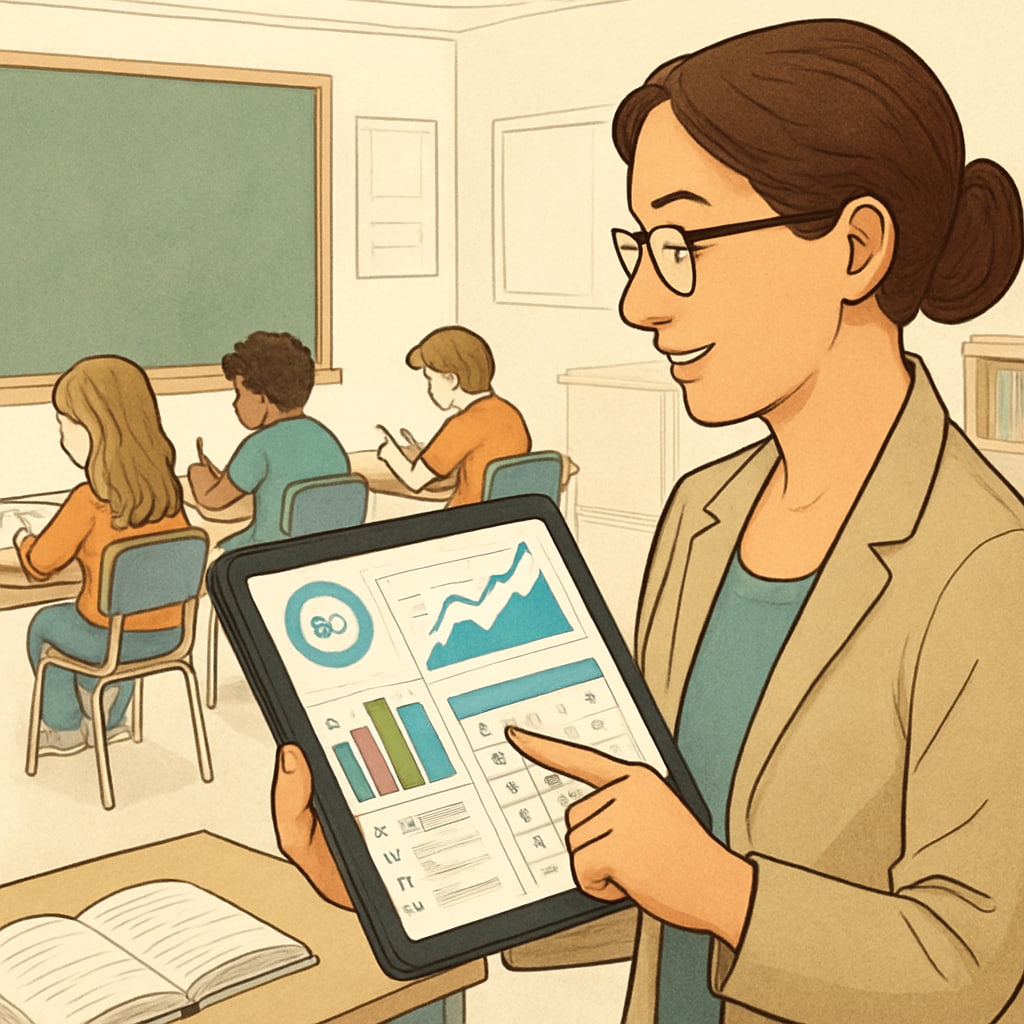In the realm of education, grades have long been the dominant metric for evaluating student performance. However, the over-reliance on grades as the sole measure of success often overshadows the broader goals of learning. This article delves into the limitations of grades in education assessment, their impact on students’ holistic development, and the potential of adopting real-time learning tracking systems to foster a more effective and inclusive K12 education framework.
The Limitations of Grades as Education Assessment
Grades, though standardized and easy to interpret, fail to capture the full spectrum of a student’s abilities and progress. They often reduce complex learning processes into simplistic numerical or letter-based evaluations. This narrow focus creates several challenges:
- Overemphasis on Memorization: Grades often prioritize rote learning over critical thinking and creativity.
- Neglect of Non-Academic Skills: Core competencies like emotional intelligence, collaboration, and problem-solving are frequently overlooked.
- One-Size-Fits-All Approach: Grades do not account for diverse learning styles and paces, potentially sidelining students with unique needs.
As a result, students may feel pressured to achieve high grades at the expense of meaningful learning, leading to stress and disengagement. The limitations of this system necessitate a rethinking of how we define and assess educational success.

Impact of Grade-Centric Systems on Holistic Development
When education systems focus predominantly on grades, the broader purpose of education—to nurture well-rounded individuals—can be compromised. Several adverse effects may arise:
- Reduced Intrinsic Motivation: Students may learn for the sake of grades rather than genuine curiosity.
- Inadequate Preparation for Real-World Challenges: Life rarely operates on a grading scale. Success often depends on adaptability, resilience, and interpersonal skills—qualities that grades fail to measure.
- Unnecessary Competition: A grade-centric environment can foster unhealthy competition, undermining collaboration and mutual support among peers.
These effects underscore the importance of a more inclusive and dynamic assessment model that values diverse talents and encourages lifelong learning.

Moving Toward Real-Time Learning Tracking
To address the shortcomings of traditional grading systems, education experts are advocating for the adoption of real-time learning tracking systems. These systems provide ongoing insights into a student’s progress, strengths, and areas for improvement. Key benefits include:
- Personalized Learning: Real-time tracking allows educators to tailor instruction to individual student needs.
- Holistic Development: By evaluating a wider range of skills, including creativity and collaboration, these systems promote well-rounded growth.
- Immediate Feedback: Students and teachers receive instant feedback, enabling timely interventions and adjustments.
For example, digital platforms like learning management systems (LMS) can track participation, project outcomes, and even social engagement, offering a comprehensive view of student progress. According to a Britannica article on education, leveraging technology in education can significantly enhance learning outcomes by making assessments more adaptive and student-focused.
Building a Multi-Dimensional Assessment Framework
A robust educational assessment system should integrate multiple dimensions of learning. This could include:
- Portfolios: Students compile work samples to showcase their growth over time.
- Peer and Self-Assessments: Encouraging students to evaluate their own and their peers’ contributions fosters reflection and accountability.
- Project-Based Learning: Real-world projects allow students to apply knowledge creatively and collaboratively.
These approaches ensure that assessments are not only about measuring outcomes but also about cultivating a deeper understanding of the learning process. The transition to such a system will require both educators and policymakers to embrace change, but the benefits for student development are undeniable.
Conclusion: Beyond Grades
Grades will likely remain a part of the education system, but they should not be the sole determinant of a student’s abilities or potential. By adopting real-time learning tracking systems and multi-dimensional assessment frameworks, we can create a more inclusive, personalized, and effective education environment. As a result, students will be better prepared not only for academic success but also for the challenges of life beyond the classroom.
For further insights into education reform, you can explore this Wikipedia article on education reform.
Readability guidance: Use short paragraphs and lists to summarize key points, ensure smooth transitions between sections, and maintain an active voice throughout. Incorporate real-world examples to enhance engagement.


